帰国後英語を忘れる 2025 Forgetting English After Coming Back to Japan
帰国子女が英語を忘れる理由と対策
帰国子女はなぜ英語を忘れるのか?
- 英語を定期的に使わないと、2年以内に英語力が低下する。
- 日本語環境に適応するため、英語を話さなくなる。
- 脳が英語を「不要な情報」として認識し、忘れてしまう。
- 英語を話す友達がいないと、英語が嫌いになることも。
- 親の努力だけでは、英語力を維持するのは難しい。
英語を忘れないための対策
- 英語を話す同年代の友達を作る – 帰国子女向けの英会話スクールやアクティビティに参加する。
- 英語をアウトプットする機会を増やす – 英語で話す環境を作り、読書やライティングの習慣をつける。
- 英語を楽しむ – Netflix、YouTube、映画、本などを英語で楽しむ。
- 英語オンリーの環境を作る – 家庭で英語ルールを設定したり、英語学習イベントに参加する。
- 英語学習の目標を持つ – 英検やTOEFLなどの試験を目標にすることでモチベーションを維持する。
成功事例
6歳で帰国したある生徒は、英語を話す友達との競争心を活かし、積極的に学び続けました。その結果、高校卒業後にはカリフォルニア大学バークレー校へ進学。適切なサポートと環境があれば、英語力を維持し続けることができます。
📌 英語力を維持するには、適切な環境・仲間・サポートが必要です!
ジャレッドは16年、日本人一般性と帰国子女に英語を教えており、帰国子女には特別なアプローチが必要だと理解しています。彼はハーバード大学でスクールマネジメントとリーダーシップの認定証を取得しています。Lexisは約30年間、帰国子女に特化した英語教育を提供しています。
For 16 years, Jared has been teaching English to Japanese and returnee students, understanding that returnee students need a special approach. He also holds a Certificate in School Management and Leadership from Harvard University. For nearly 30 years, Lexis has specialized in providing English education tailored to returnee students.
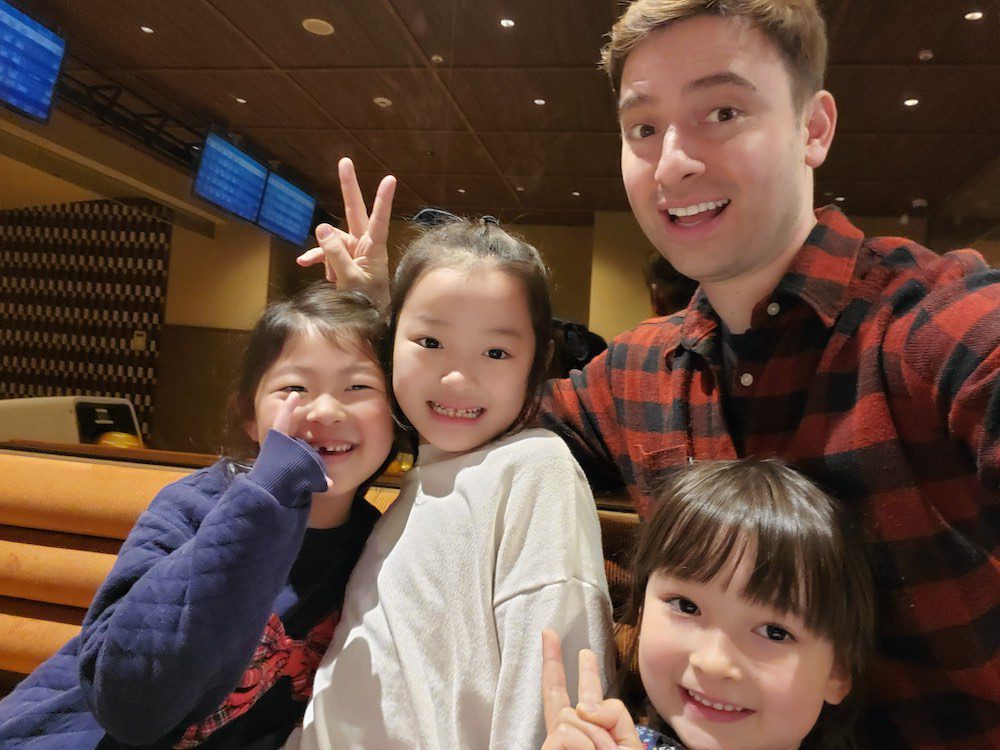
ジぇレッドはレクシスのサマーデイキャンプで帰国子女やバイリンガルの生徒たちと楽しい時間を過ごしました。
帰国後、英語を忘れる
帰国後に英語を忘れてしまうことについて
何度も、親御さんが日本に戻ってきて、お子さんがあっという間に英語を忘れてしまうことに驚かれます。日本のどの地域を歩いても、英語がほとんど話されていないことに気づくのは簡単です。子供は素早く学ぶことができます。これは子供だけが持つ驚異的な能力です。しかし、私たちはしばしばその反対の側面を考えません。人間の脳は関連性のない情報を忘れるように設計されています。時々役に立たないことを覚えていますが、一般的には使わないことは覚えていません。子供たちは素早く学びますが、その情報を使わなければ忘れてしまいます。
クイックファクト:
- 私たちの経験では、定期的に英語を使わないと、生徒は2年以内に英語力を失ってしまいます。
- 帰国した生徒は、日本語を話す友達と仲良くなるために英語を放棄するリスクが非常に高いです。日本で友達を作ることは、平均的な帰国子女にとって非常に重要です。
- 英語を話す友達がいない生徒は、特に学校の授業が簡単すぎるか、文法に焦点を当てたものばかりで会話中心でない場合、英語を嫌いになり始めます。
- 生徒は友達に合わせるために、英語力を隠すことがあります。
- 日本語を話す友達の影響は非常に強いため、親の最善の努力でも子供の英語力を失わせないことができない場合があります。
- 適切なサポートがないと、かつて英語が堪能だった子供たちも基本的なことを再学習する必要があり、クラスの中で同年代の仲間が進む一方で大幅に後退することがあります。
- 帰国子女が英語を忘れる理由と対策
- 帰国後、英語を忘れる
- Forgetting English after coming back to Japan
- How My Grandmother Lost Her Native Language
- Challenges of Maintaining English for Returnee Students in Japan: The Importance of Language Output
- Effective Strategies for Parents to Maintain Their Children's English Skills: The Power of Peer Influence
- Finding Peers to Maintain Children's English Skills: The Key to Language Retention Through Social Interaction
- Engaging Returnee Students in English: Field Trips and Activities to Maintain Language Skills
- Act Now to Prevent Your Child from Losing English Skills: The Importance of Continuous Language Support
- Success Stories of Returnee Students at Lexis: From Childhood to University Excellence
- To Returnee Students and Families Across Japan
帰国子女 英語できない
実際、私の祖母にもこれが起こりました。彼女はフランスで生まれ、最初の5年間はフランス語だけを話して過ごしました。6歳の時にアメリカ合衆国に移りました。母国語がフランス語であったにもかかわらず、アメリカに移ってからは、フランス語を使う必要がありませんでした。そこでは誰もフランス語を話していませんでした。彼女は完全にフランス語を忘れてしまいました。10代になる頃には、全く覚えていませんでした。
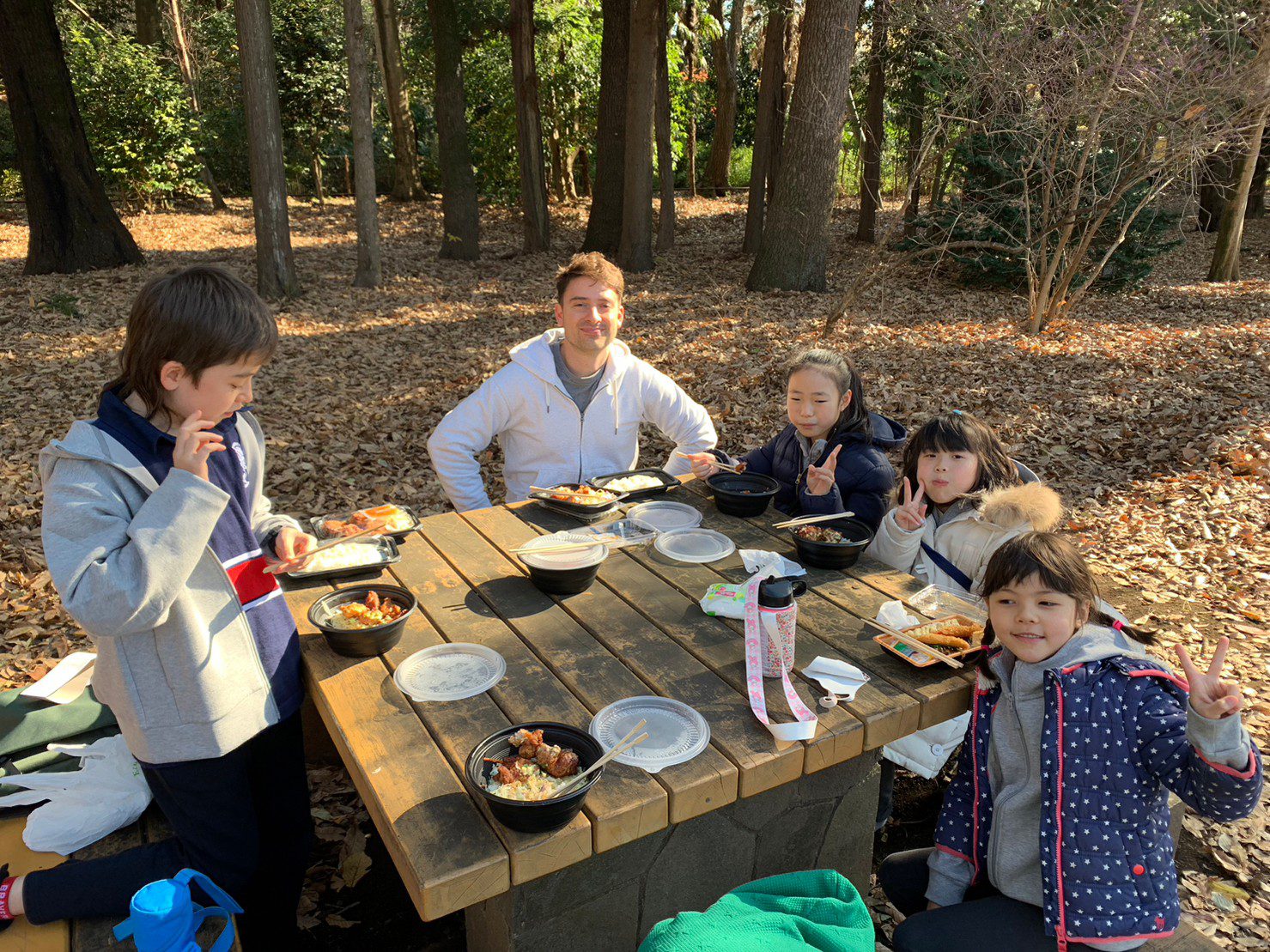
帰国子女が英語を忘れるのを防ぐためにしたいこと
日本に戻る生徒にとって、英語はおそらく第二言語であり、第一言語ではありません。その生徒が自然に英語を維持する可能性は非常に低いです。さらに、祖母の場合、フランス語と英語は同じアルファベットを共有していました。漢字、ひらがな、カタカナが標準的な英語のアルファベットとはいかに異なるかは皆さんご存知の通りです。幸いにも、私たちはより近代的な時代に生きています。YouTube、Amazon、Netflixなどは、言語のインプットを作る機会を提供します。生徒たちは英語で楽しく、娯楽的な方法で英語を聞くことができます。英語で想像したり、観たり、英語から感情を感じることもできます。これらは適切に、制御された環境で使用すると良いです。しかし、アウトプットはどうでしょうか?友達と英語で交流することはできますか?状況を説明することはできますか?間違いを訂正し、冒険を励ます、言葉を話す時に指導する
人がいるでしょうか?日本に戻ってきた生徒にとって、これは出発点です。
親の役割:子供が日本に帰国後も英語力を維持するためのアクティビティ
親として私たちには選択肢があります。英語が十分に得意であれば、親は完全に英語にコミットすることができます。完全に英語で話し、英語の質問にだけ答え、家族がテレビを見る場合は、子供たちにできるだけ多くの英語の番組を見せることができます。これは特に若い子供たちには良い効果があります。本はさらに良いです。親が読む英語の本、子供が読む英語の本は、素晴らしい解決策です。しかし、子供たちは同年代の友達が大好きです。はい、良い母親や父親は公園で英語でかくれんぼをします。彼らはサッカーを教えたり、英語でダンスを楽しんだりします。これらは親子の絆を深める素晴らしい方法です。しかし、最終的には、子供たちは自分たちがしていることを他の子供たちがしているのを見る必要があります。子供たちは同年代の子供たちがすることを真似します。ですから、どんなに良い意図を持った親でも、自分たちの年齢の他の子供たちが話す日本語に子供たちが移行してしまうことに気付くでしょう。子供たちにとって、同年代の力は何ものにも勝ります。
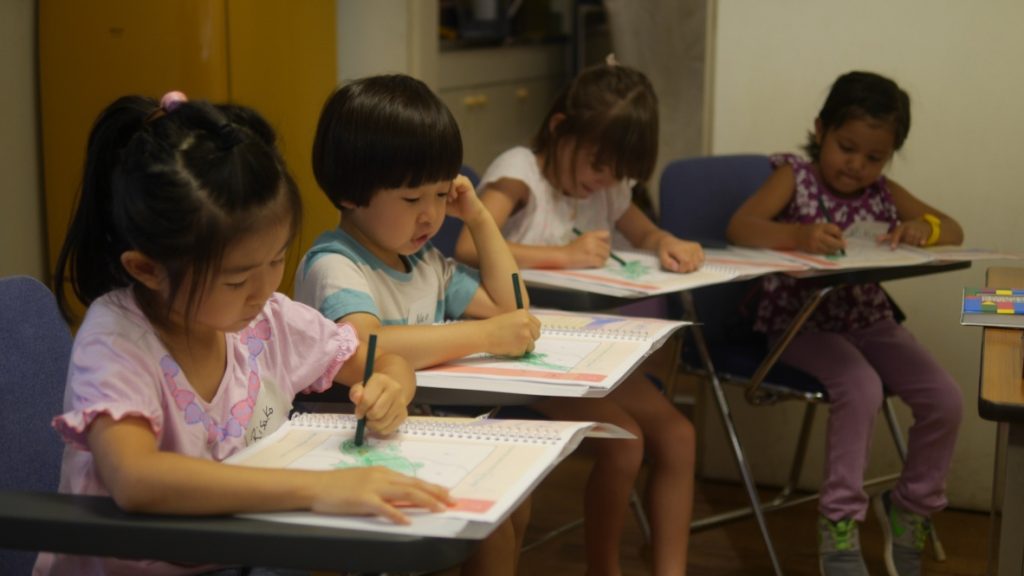
帰国子女英語力キープ:速く英語を忘れる問題への対処法
では、解決策は何でしょうか?まず一つの簡単な解決策は、彼らのために同年代の友達を見つけることです!同じような子供たちとのクラスや活動に参加することで、彼らは英語の使用を正常化することができます。英語はもはや無関係な情報と見なされず、また大人だけが使用するものとしてグループ化されません。同年代の活動を通じて、子供たちは友達、先生、コーチとの楽しい、意味のある関係を英語で築き、一緒に練習し、成長し、競い合い、思い出を作ります。このような相互作用を通じて、子供たちは英語を維持するためのより大きな動機を持つようになります。
しかし、勉強したくない生徒はどうなるのでしょうか?彼らが海外で英語を学び、ただ教室で言語を勉強することに熱心でない場合、より多くの対策を講じる必要があります。子供たちはしば
しばしば最初にイベントや経験を通じて学んでいますので、そのようなものを維持する必要があります。レクシスでは、このような生徒のために多くの遠足の機会を設けています。関東周辺には「英語フレンドリー」な様々な場所があります。私たちは新座市のトランポランド、豊洲のチームラボ・プラネッツ、キッザニアの英語ウェンズデープログラムなど、素晴らしい場所を見つけています。さらに、ロッククライミング、ボウリング、アート&クラフト、スケートなど、自分たちで楽しい体験を創造することで、日本国内に「英語オンリーゾーン」を作り、子供たちが周りの世界に慣れるのを助けています。
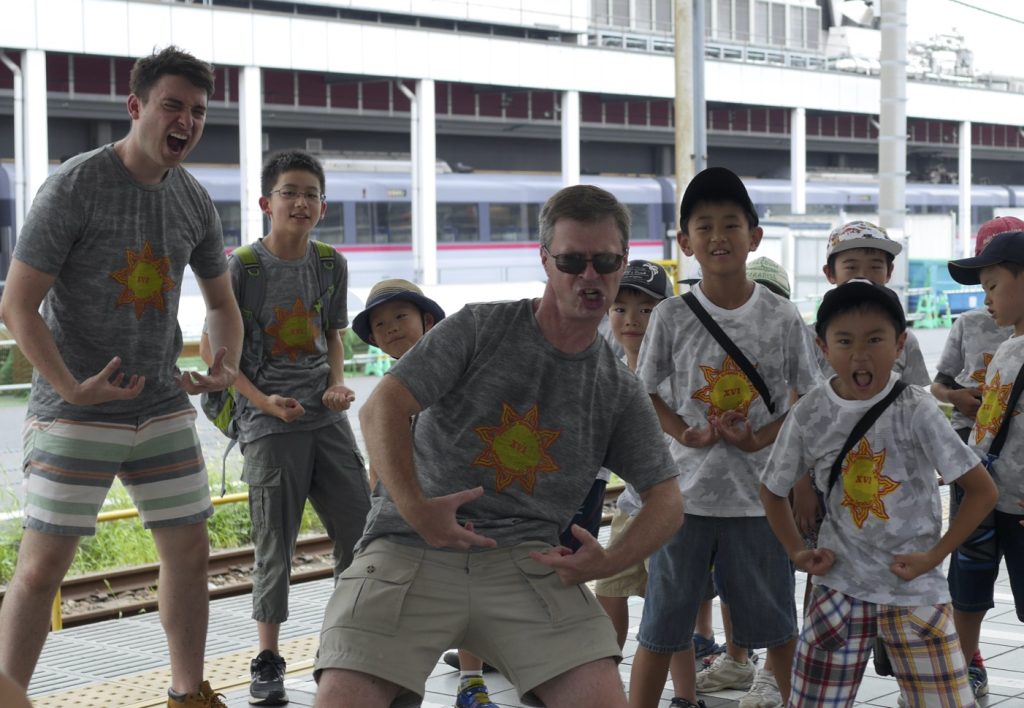
帰国後英語忘れる
もしお子さんが英語の能力を失い始めているなら、今が行動を起こす時です。まだ流暢なら、注意してください。15年間の教師経験で、流暢な小学3年生が、他のことが邪魔になり、中学生になるとカタカナを使った日本語英語を話すようになるのを見てきました。これらの生徒が小学3年生で私たちの学校を離れ、中学1年生で戻ってくると、言語能力の低下は非常にリアルです。北米の小学3年生の英語(英検プレ2)を再びやり直すことになる可能性が高いですが、レクシスに残っていた生徒たちは英検1級近くを読むことができます。適切なアウトプット、適切なサポート、適切な友達がなければ、日本国外で発達したそのネイティブの英語スキルは、自分の脳によって無関係と見なされ、誰もが2回も別の言語を学ぶ過程を経験したくはありません。
レクシスでの帰国子女成功事例:6歳の少年の成長物語
30年以上にわたり、私たちは数千人の帰国子女を教えてきました。ここでは、アメリカから帰国した6歳の男の子の話を紹介します。彼は優れた英語のスピーキング能力を持ってレクシスに来ました。最初はレクシスで簡単なグレードリーダーから始め、1年生向けのストーリーを誰が一番早く読めるかをクラスメートと競い合いました。その競争心が彼をレクシスで素晴らしい生徒にしました。彼は宿題をきちんとこなし、授業中も一生懸命取り組み、新しい技術や映画のリリース、学校生活のドラマについてよく話していました。高校生になる頃には、他の生徒のiPhoneを修理し、大学受験レベルの読書について議論し、大人としての生活に備えていました。私たちは彼を、そして彼のような多くの生徒をとても誇りに思っています。彼はレクシスを自分の言葉でこう表現しています。

幼少期の3年半を米国で過ごし、帰国後Lexisに10年以上通い、英語力を維持、向上させ、現在はカリフォルニア大学バークレー校で学んでいます。いくつかの学習機関の体験レッスンに参加しましたが、読み、書き、会話の学習バランスが良く、ネイティブの先生がレベルにあった授業をしてくれるのが魅力でした。季節のイベントや映画、音楽なども取り入れ、幼い年齢でも飽きずに楽しみながら毎週通いました。私の英語力、表現力の基礎となっているのは、間違いなくLexisでの学習経験です
-Y.T.
日本全国の帰国子女とそのご家族へ
もしこれを読んでいて、東京近郊にお住まいの方は、ぜひ吉祥寺にある私たちの学校、レクシスにお越しください。しかし、日本全国の方々にとっては難しいこともあるでしょう。私はかつて長野県伊那市で帰国子女を教えていましたが、通常一度に一人の生徒しかいませんでした。オンラインの選択肢や、場合によっては地元の英会話学校でクラスを受けることも可能です。しかし、多くの場合、個別レッスンや小学生と高校生が一緒に学ぶようなクラスになることが多いです。最終的には、同年代の子どもたちと一緒に、自然な環境で言語を使うことが目標です。レクシスでは、オンラインレッスンも提供しており、日本中の生徒がクラスに参加し、教室の生徒と一緒に学び、発表し、意見を共有することができます。宿題を真剣に取り組み、クラスを楽しむ生徒たちに大きな成功を見てきました。お住まいの地域でも対面クラスがあるかもしれませんので、ぜひ探してみてください。対面クラスでは、特に友達を作ることができると非常に良いです。
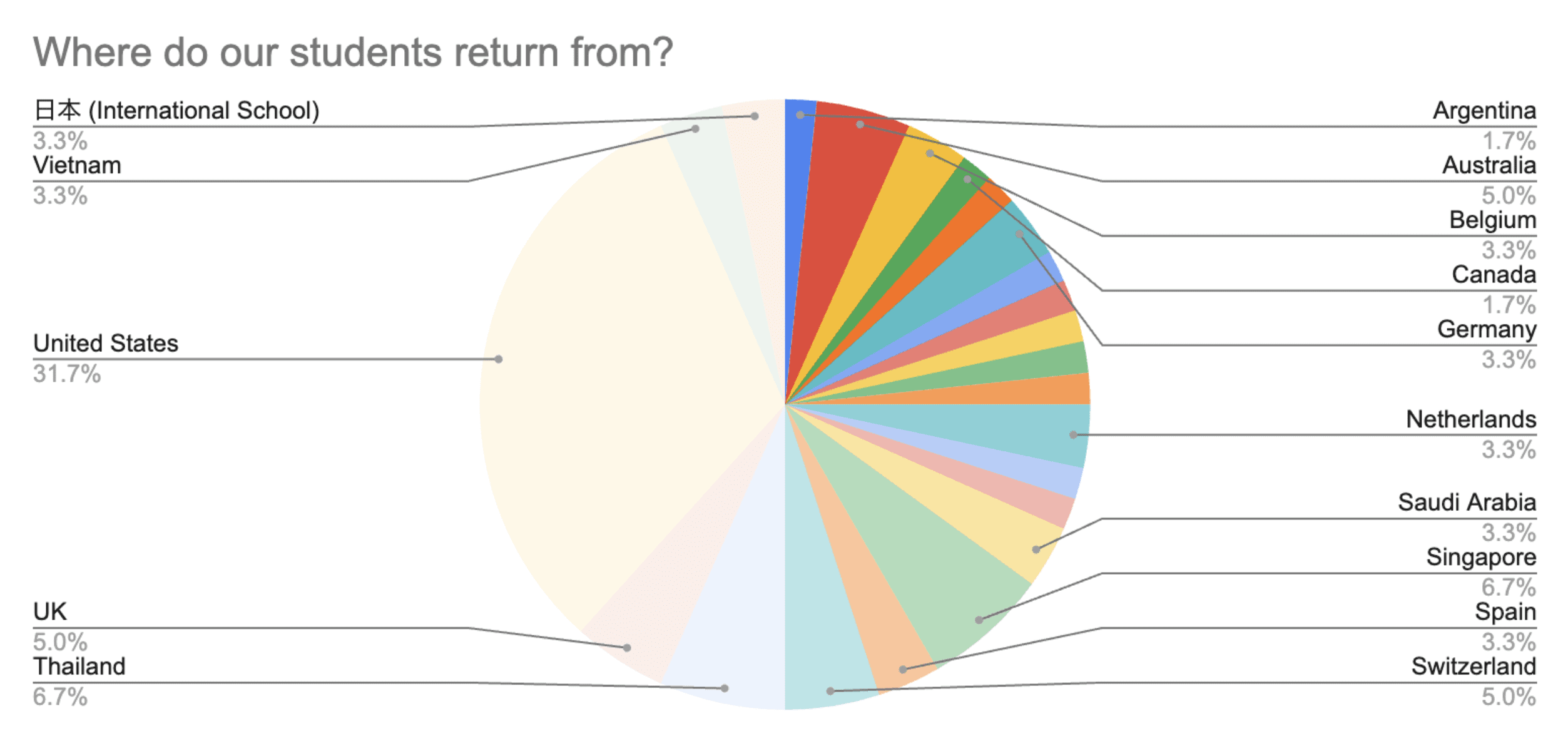
Forgetting English after coming back to Japan
Time and time again, parents come back to Japan and are surprised that their children are forgetting English so quickly. In only takes a quick walk around any neighborhood in the country to realize though that English is almost never spoken. Children can learn things quick. It is an amazing skill and talent that only children have. Yet we don't often consider the other side of the situation. Human brains are designed to forget irrelevant information. We remember useless things from time to time, but in general, we don't remember things we don't use. Children may learn things quickly, but if they are not using that information they will forget it.
Quick Facts:
- From our experience, students will lose their English ability within two years without using it regularly.
- Returning students face a high risk of abandoning English as they struggle to fit in with Japanese-speaking peers. Making friends in Japan is much more important to the average returnee.
- Students who don't have English-speaking friends start to dislike English, especially because school classes are either too easy or grammar-focused rather than conversational.
- Students may hide their English ability from their friends so they can fit in.
- The influence of Japanese-speaking peers is sometimes so strong that even the best efforts of parents might not prevent their children from losing their English proficiency.
- Without proper support, children who were once fluent in English might regress significantly, needing to relearn basics while their peers in classes advance.
How My Grandmother Lost Her Native Language
This happened to my grandmother in fact. She was born in France and spent the first five years of her life speaking exclusively French. At six years old, she moved to the United States of America. Despite her first language being French, upon moving to the United States, there was no reason for her to be brain to be operating in French. Nobody was speaking French there. French was her first language. She lost it entirely. By the time she was in her teen years, she couldn't remember it.
Challenges of Maintaining English for Returnee Students in Japan: The Importance of Language Output
For a student coming back to Japan, English was likely their second language, not his or her first language. The odds of that student naturally holding on to that English naturally are very slim. Furthermore, in my grandmother's case, the two languages, French and English even shared the same alphabet. We all know how different Kanji, Hiraragana and Katana are from the standard English alphabet. Thankfully, we live in a more modern generation. Yes, Youtube, Amazon, Netflix, etc do allow us to create chances for language input. Students can hear English in fun and entertaining ways. They can imagine in English, they can watch in English, they can even feel emotions from English. I highly these when used properly in controlled environments. Yet, where is the output? Can they interact with friends in English? Can they explain a situation? Who will correct their mistakes, encourages adventure, or guide them in this language when it is time to actually speak the language? When students come back to Japan though, this is a starting point.
Effective Strategies for Parents to Maintain Their Children's English Skills: The Power of Peer Influence
As parents we have options. If our English is good enough, a parent can commit to English entirely. Speak solely English, respond only to English questions, and if your family watches TV you can direct your children to as many English shows as possible. This does have a good effect, especially with younger children. Books are even better. Reading in English, both parent led and child led are fantastic solutions. Children, however, love their peers. Yes, a good mother or father will play hide and seek in English at the park. They may teach soccer, or enjoy dance, all in English. These are fantastic ways to build bonds between parents and children. At the end of the day however, kids need to see other kids doing what they are doing. Kids imitate their own peer group. Kids copy what the other kids are doing. So even the best intentioned parents may find their kids moving towards the Japanese being spoken by other kids their own age. With kids, almost nothing beats the power of their peers.
Finding Peers to Maintain Children's English Skills: The Key to Language Retention Through Social Interaction
So what is the solution? Well, one simple solution is to find peers for them! Joining classes and activities with other similar children will allow them to normalize English use. English will no longer be deemed irrelevant information. Nor will it be grouped as something that only grown-ups use. By finding peer activities, kids can build fun, meaningful relationships through English with their friends, teachers and coaches. They will also get a chance to practice and grow together, work and have fun together, compete and make memories together. Through this kind of interaction, kids will develop a greater motivation to keep up their English.
Engaging Returnee Students in English: Field Trips and Activities to Maintain Language Skills
What happens to students who don't want to study though? If they have learned English abroad and are not super keen to just study a language in a classroom, then more steps need to be taken. Events and experiences are how the kids often learned in the first place, so these types of things need to be maintained. The approach we have taken at Lexis is to have a large amount of field trip opportunities for these students. There are a wide variety of places that are "English friendly" around Kanto. We have found fantastic places such as Trampoland in Niiza, Team Lab Planets in Toyosu, Kidzania's English Wednesday program, and so many more. Additionally, by creating our own fun through experiences such as rock climbing, bowling, arts and crafts, ice skating, and more, we have been able to create an English only zone within Japan's borders, to better help kids get acclimated to the world around us.
Act Now to Prevent Your Child from Losing English Skills: The Importance of Continuous Language Support
So if your child is starting to lose his or her English ability, the time to act is now. If they are still fluent, please be careful. In my 15 years teaching, I have seen fluent elementary third graders turn into katakana using, Japanese-English speaking junior high school students because other things got in the way. When these students leave our school in 3rd grade and try to come back at 1st grade of junior high school, the language ability drop is so real. The likelihood is that they will have to repeat North American 3rd grade English (Eiken Pre 2) again when returning, while their peers that stayed with us at Lexis will be reading near the Eiken 1 level. Without proper output, without proper support, and without proper friends, all that native English skill developed outside of Japan, will be deemed irrelevant by their own brain. And no one wants to have to go through the process of learning another language two whole times.
Success Stories of Returnee Students at Lexis: From Childhood to University Excellence
Over 30 years we have taught thousands of returnee students. Here is the story of one boy who came to Lexis at 6 years old, a returnee from the USA with good speaking ability. He started with simple graded readers at Lexis, competing with his classmates about who could read the stories for first graders the fastest. Over time that competitive spirit made him a fantastic student here at Lexis. He kept up with all the homework and worked hard in class, often chatting about new technology, upcoming movie releases and school life drama. By the time high school rolled around, he was fixing other students iPhones, discussing our university prep level readings, and preparing for life as an adult. We are very proud of him, and so many other students like him. He describes Lexis in his own words here.

I spent three and a half years in the US during my early childhood, and after coming back to Japan, I attended Lexis for over ten years. Thanks to that, I kept improving my English and now I'm studying at the University of California, Berkeley. I tried out a few other schools, but Lexis stood out because of its great balance of reading, writing, and speaking lessons. The native teachers really knew how to tailor the classes to our levels. Plus, they made learning fun with seasonal events, movies, and music, so I looked forward to going every week, even as a kid. My solid foundation in English and my ability to express myself definitely come from my time at Lexis.
-Y.T.
To Returnee Students and Families Across Japan
If you are reading this and are in the Tokyo area, we welcome you to check out our school, Lexis, in Kichijoji. But for people across Japan it can often be hard. I used to teach returnees in Nagano prefecture in Ina City but usually, there was only one student at a time. There are online options, or occasionally local English schools can provide classes for you. However, many times they will have to be private lessons or have elementary school students studying with high school seniors. Ultimately the goal is to get kids around other kids their own age, using the language naturally in a lively environment. Lexis does offer online lessons, where students around Japan can join our in classroom students and follow along as well as present their information and share their thoughts. We have seen great success with students who take the homework seriously and have fun during the classes. Your local area may well have in person classes as well, and those are often great, especially when kids can make friends!


